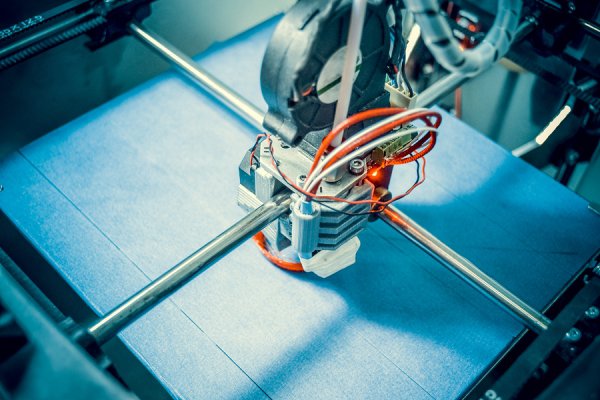
With the advent of 3D printing technology, tech enthusiasts have created everything from a DIY violin to a bust of King Richard III. This technology has even been used to build a biocompatible implant to replace most of a man’s damaged skull, and printable organs aren’t too far off, either. So it isn’t much of a stretch to envision dentists using 3D printers to create dental implants, veneers, and crowns someday—especially since some dentists have already invested in CEREC technology .
A Closer Look at CEREC
CEREC is advanced technology that isn’t yet widely available. If your dentist has invested in it, he or she can fabricate your new, custom-made crown, onlay, or veneer, all right in the office. This means you won’t have to wait for impressions to be sent to a lab so that you can receive custom restorations. CEREC is similar to 3D printing, but it’s only used for ceramic restorations. A scan of your mouth is uploaded to the computer. The dentist customizes your treatment digitally, and then sends the final design to the CEREC milling machine for fabrication. The milling machine carves the restoration out of a block of ceramic.
3D Printing in the Dentist’s Office
If 3D printing does find a home in dental offices, it will enable dentists to print new teeth in fewer than 10 minutes. Unlike CEREC, which mills restorations, 3D printers would build them one tiny layer at a time. It’s thought that this would offer advantages over CEREC, as 3D printers could recreate all of the intricate little details of a real tooth. One major obstacle is that, currently, 3D printers can generally only print in one material—plastic. (Highly specialized 3D printers have “printed” human stem cells.) Experts envision a time in the not-too-distant future, in which 3D printers are capable of shaping zirconia into teeth.
Here at University Associates in Dentistry , we understand that your time is valuable, and we want to send you on your way with a healthy, beautiful smile as quickly as possible. That’s why our dentists in Chicago are proud to offer one-visit crowns with CEREC technology. Call (312) 704-5511 to request your dental consultation.



 Chemotherapy can be a lifesaver. It can also cause serious, unintended consequences, like a suppressed immune system, severe nausea, and weight loss. These effects are well-known, but what many cancer patients don’t realize is that chemo can also adversely affect oral health. If you’re expecting to undergo chemo, you’ve already receiving it, or you’re anticipating radiation therapy to the head region, talk to a
Chemotherapy can be a lifesaver. It can also cause serious, unintended consequences, like a suppressed immune system, severe nausea, and weight loss. These effects are well-known, but what many cancer patients don’t realize is that chemo can also adversely affect oral health. If you’re expecting to undergo chemo, you’ve already receiving it, or you’re anticipating radiation therapy to the head region, talk to a 